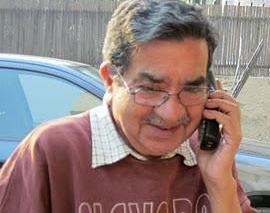
Jatinder Sethi was born in Lyallpur, now Faisalabad, in pre-Independence India. He finished his M.A. (English) from Delhi University in 1956, and went off to London to study Advertising in 1958. He passed his Membership Exam of The Institute of Practitioners in Advertising (M.I.P.A) in1965, and joined Rallis India in Bombay. Later, for over 20 years, he worked for the advertising agency Ogilvy &\; Mather. Now retired, he helps his son in his ad agency in Delhi.
Some old grannies, with lot of time on their hands, keep themselves busy by knitting, for their great grand (even yet unborn) children mojas (socks) and dastanas (gloves) using different colour leftover wool balls.
Similarly, I am trying to knit a tale of my family, especially my mother and sister Toshi (Santosh) from the left over tit-bits of talks with my brothers and sister in later life. It may seem disjointed but it will, like the grannies' mojas, come out colourful. I hope so.
It is a story of the turbulent times of India's Partition and after - late 1940s and early 1950s. But it is NOT the usual gory tale of partition like hundreds of others.
It was the time when young Indian girls, including Hindu girls, had to wear long salwar, shirt and Chunni on her head, with long hair gut with, preferably, paranda. Yet, girls were allowed to study in co-educational colleges like Government College, Lyallpur. The concept of boy-friends was taboo, even in liberal families like mine, where girls went to Government College for FA and BA - but no boyfriends